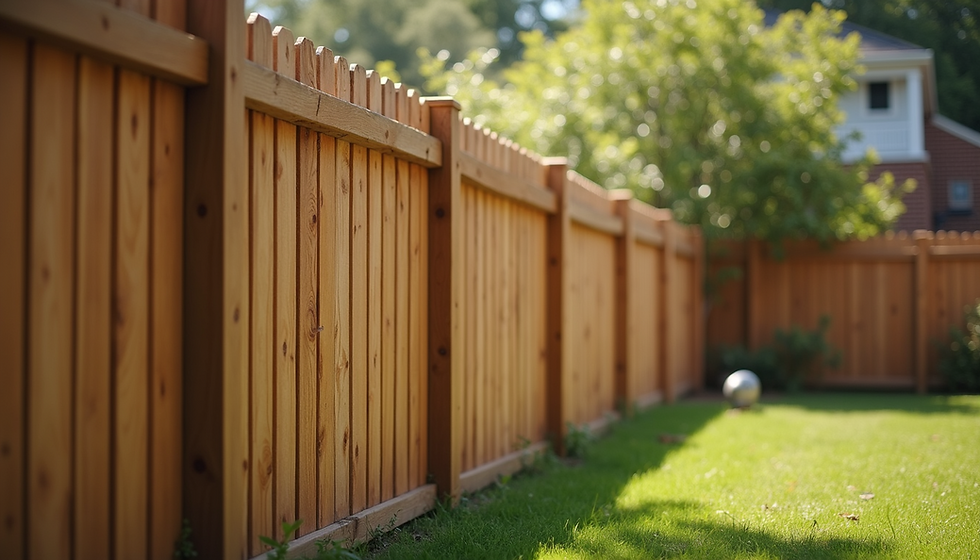The Pros and Cons of Wood vs Vinyl Fencing
- Mikey
- Jun 14, 2023
- 3 min read
The two most common materials customers ask for are Wood and Vinyl. We're here to give you the inside look of the Pros and Cons of each material.
Wood Fence: Pros:
Aesthetics: Wood fences offer a natural and timeless look that can enhance the overall appearance of your property. They can be stained, painted, or left untreated to achieve the desired color and finish, offering a warm and classic appeal.
Customization: Wood fences are highly customizable, allowing you to design and build a fence that meets your specific needs and personal preferences. You can choose from various wood types, styles, heights, and decorative elements and trim to create a unique and personalized fence.
Privacy: Wood privacy style fences provide excellent privacy, creating a solid barrier that blocks the view from the outside from any unwanted attention.
Repairability: Wood fences are relatively easy to repair if damaged. Individual boards or sections can be replaced without having to replace the entire fence, saving you money on repairs.
Eco-Friendly: Wood is a renewable and biodegradable material, making wood fences an environmentally friendly option for fencing.
Cons:
Maintenance: Wood fences require regular maintenance, including staining, painting, sealing, and potential repairs to keep them looking good and prolong their lifespan. This can add to the overall cost and time investment of a wood fence.
Durability: Wood fences can be susceptible to rot, decay, insects, and weather elements, especially if not properly maintained. They are not as durable as vinyl fences in the long run.
Cost: Wood fences can vary in cost depending on the wood species, design, and size. They can be more expensive upfront compared to standard vinyl fences depending on the style and wood type you choose. Important to not forget the ongoing maintenance costs to keep that fence in good shape.
Vinyl Fence: Pros:
Low Maintenance: Vinyl fences require minimal maintenance. They do not require painting, staining, sealing, or regular repairs, making them a low-maintenance option that can save you time and effort in upkeep.
Durability: Vinyl fences are highly durable and can withstand various weather conditions, such as rain, snow, and UV rays, without rotting, warping, or fading. They are resistant to insects, decay, and other environmental factors, making them a long-lasting option.
Clean Appearance: Vinyl fences typically have a clean and uniform appearance, with no knots, cracks, or imperfections. They can maintain their appearance without the need for painting or staining.
Variety of Styles: Vinyl fences come in a wide range of styles, colors, and textures, offering versatility in design options to suit different aesthetic preferences and complement various property styles.
Safety: Vinyl fences are typically designed with no sharp edges, nails, or splinters, making them safe for children and pets.
Cons:
Aesthetics: While vinyl fences offer a clean and uniform appearance, they may lack the natural warmth and charm of wood fences for some homeowners or businesses.
Upfront Cost: Vinyl fences can be more expensive upfront compared to wood fences, depending on the style, height, and quality of the vinyl material.
Limited Customization: Vinyl fences may have limited customization options compared to wood fences, as they come in pre-fabricated panels and pieces with fewer design elements.
In conclusion, wood and vinyl fences have their own advantages and disadvantages. Wood fences offer a natural and customizable look but require regular maintenance and may not be as durable. On the other hand, vinyl fences are low-maintenance, durable, and come in a variety of styles but may have a higher upfront cost and limited customization options. Consider your budget, maintenance preferences, desired aesthetics, and durability requirements when choosing between wood and vinyl fences for your specific needs.





Comments